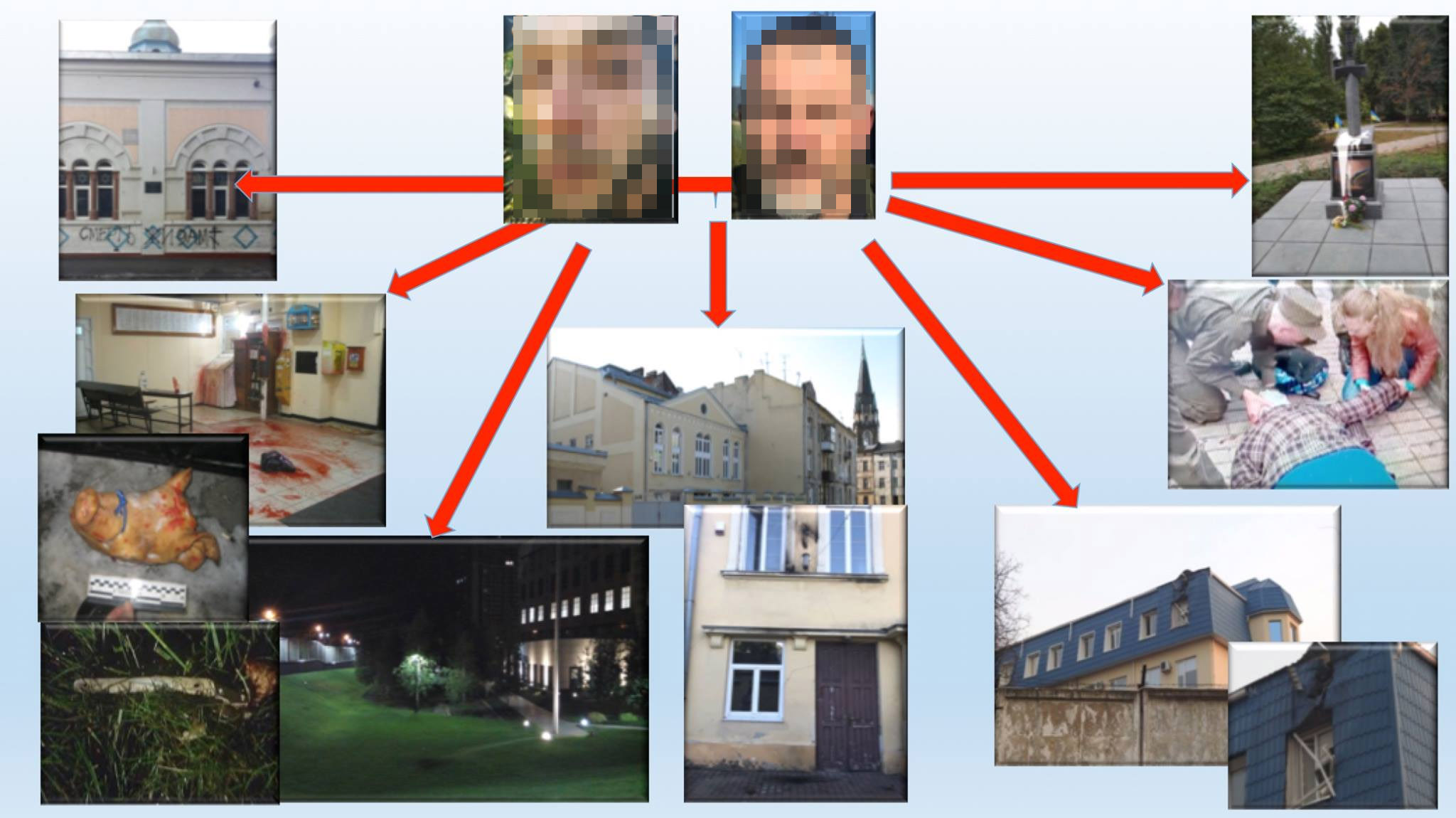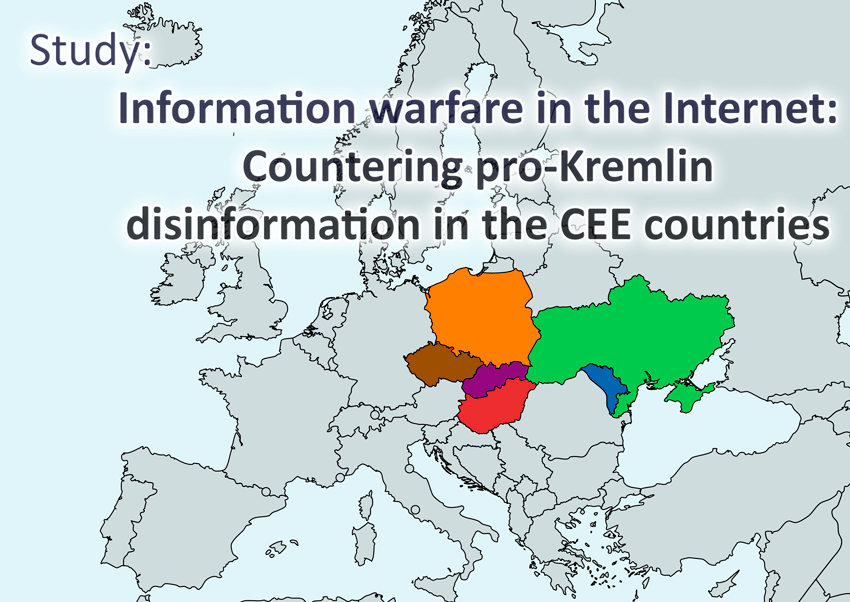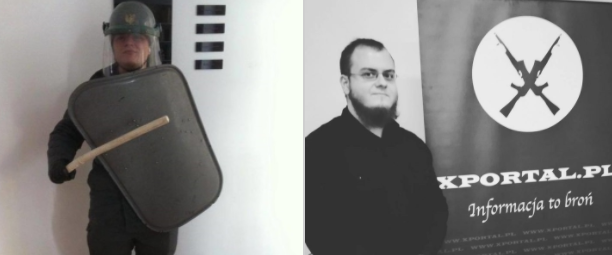On 2 October 2017, Ukraine's Security Service (SBU) reported it detained a gang plotting to blow up a Hungarian monument in Ukraine's westernmost Zakarpattia Oblast, home to a significant Hungarian minority. The timing for the act was carefully planned: Ukrainian-Hungarian tensions have soared as Ukraine adopted a bill outlining the decreased use of minority language schools, angering the minority and causing Hungarian President Viktor Orban to go so far as to mull using force against Ukraine. Against this background, a blown-up monument would have been sure to sour up relations between Ukraine and Hungary even more.
Ukrainian Minister of Interior Arsen Avakov informed on his fb page that the gang is connected to members of the Opposition Bloc, a pro-Russian political party which succeeded the party of disgraced President Yanukovych, ousted during the Euromaidan revolution of 2013-2014. He claimed that the gang, called "organized crime group Torpedo," is responsible for a number of other resonant crimes with the aim to generate inter-ethnic and religious hatred in Ukraine, as well as sour Ukraine's relations with neighboring countries. The Opposition Bloc vehemently opposes Ukraine's post-Euromaidan pro-European path and is accused of being an agent of the Kremlin in Ukraine.
The SBU reported that it reported two men originating from the Cherkasy Oblast and were detained at the border between Lviv and Zakarpattia Oblasts during an attempt to place explosives under the monument "Seven Hungarian tribes." The law enforcers seized a pre-set explosive device with a connected gas cylinder as a detonator, as well as RGD-5 hand grenades.
On his Facebook page, Avakov explained that the investigation has proof the two men are connected to former Party of Regions MPs in Cherkasy Oblast Volodymyr Oliynyk and Serhiy Tulub, who after the Euromaidan Revolution fled to Russia, as well as to leaders of the Opposition Bloc. As well, Avakov claimed that DNK samples and testimonies proved that the group had participated in 9 crimes directed at fueling xenophobia, religious hatred, and international conflicts.

Apart from the unsuccessful Hungarian monument explosion, they are:
- in the city of Chernivtsi, where the Central Jewish synagogue was desecrated on the night of 19 November 2016, when its main facade was marked with an anti-Semitic inscription;
- in the town of Uman, where the malefactors came to the grave of Rabbi Nachman on 21 December 2016, and left the head of a pig with a carved swastika;
- in the city of Kyiv, where on 8 June 2017 the perpetrators threw a grenade at the premises of the US Embassy;
- in the city of Lviv, where on 30 June 2017 the malefactors tried to set fire to the synagogue;
- in the town of Lutsk, where on 10 July 2017 the attackers threw an explosive device at the consulate of Poland;
- in Kyiv, where on August 24, 2017, on Independence Day, a grenade was thrown at Hrushevskoho Street and the relatives of Hero of Ukraine Valeriy Chybinieiev were injured;
- in Kyiv, on Kurbasa Street, where a monument to combatants was blown up by grenades on the same day;
- in the town of Uman, where on September 21, 2017, a grenade was thrown, injuring citizens of Israel.
The SBU Security Service of Ukraine has posted a video showing how the operatives tracked down the saboteurs guilty of a series of anti-state crimes. Photos and video from the site were published on the SBU website. Avakov claimed the men were acting for a financial reward, with no political intentions.
https://www.youtube.com/watch?v=uS8NgvWfs4s
There had been many suspicions of a pro-Kremlin force acting behind the numerous xenophobic attacks in Ukraine, aiming to spoil Ukraine's relations with its neighbors in a coordinated campaign. It has been particularly noticeable in a campaign to sour up relations between Ukraine and Poland on the base of nationalist sentiments, during which a series of monuments was desecrated on both sides of the border. Connections to Russia have been also suspected: following the attack on the Polish consulate in Lutsk, the SBU detained participants of a rally aiming to pour more oil on the fire and found connections to Russian special services.
There are good reasons to suspect Russian money in fueling up ethnic hatred between the nations. Recently, Ukrainian hackers from the Ukrainian Cyber Alliance hacked the email and facebook accounts of Vladimir Usovsky, a Belarusian activist and proponent of the ideas of the “Russian world” living in Poland. The correspondence was analyzed by the Informnapalm investigative community. In it, he is seen receiving €100,000 from Russian oligarch Konstantin Malofeyev to organize rallies in support of “Novorossiya,” Russia’s proxy states in Donbas, during August-October 2014, as well as discrediting monuments to UPA fighters in Poland.
Read also:
- Spoiling Ukrainian-Polish relations: next phase in Kremlin’s hybrid war
- Attack on Poland’s Consulate General in Northwestern Ukraine seen as provocation
- Experts weigh in on Ukraine’s hotly debated new minority language policy











